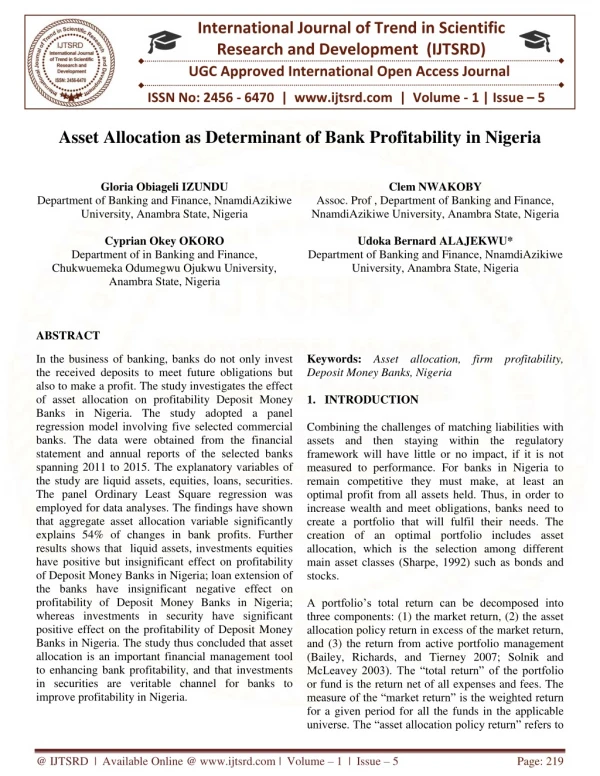Asset Allocation as Determinant of Bank Profitability in Nigeria
In the business of banking, banks do not only invest the received deposits to meet future obligations but also to make a profit. The study investigates the effect of asset allocation on profitability Deposit Money Banks in Nigeria. The study adopted a panel regression model involving five selected commercial banks. The data were obtained from the financial statement and annual reports of the selected banks spanning 2011 to 2015. The explanatory variables of the study are liquid assets, equities, loans, securities. The panel Ordinary Least Square regression was employed for data analyses. The findings have shown that aggregate asset allocation variable significantly explains 54 of changes in bank profits. Further results shows that liquid assets, investments equities have positive but insignificant effect on profitability of Deposit Money Banks in Nigeria loan extension of the banks have insignificant negative effect on profitability of Deposit Money Banks in Nigeria whereas investments in security have significant positive effect on the profitability of Deposit Money Banks in Nigeria. The study thus concluded that asset allocation is an important financial management tool to enhancing bank profitability, and that investments in securities are veritable channel for banks to improve profitability in Nigeria. Gloria Obiageli Izundu | Clem Nwakoby | Cyprian Okey Okoro | Udoka Bernard Alajekwu* "Asset Allocation as Determinant of Bank Profitability in Nigeria" Published in International Journal of Trend in Scientific Research and Development (ijtsrd), ISSN: 2456-6470, Volume-1 | Issue-5 , August 2017, URL: https://www.ijtsrd.com/papers/ijtsrd2278.pdf Paper URL: http://www.ijtsrd.com/economics/finance/2278/asset-allocation-as-determinant-of-bank-profitability-in-nigeria/gloria-obiageli-izundu
★
★
★
★
★
114 views • 10 slides







